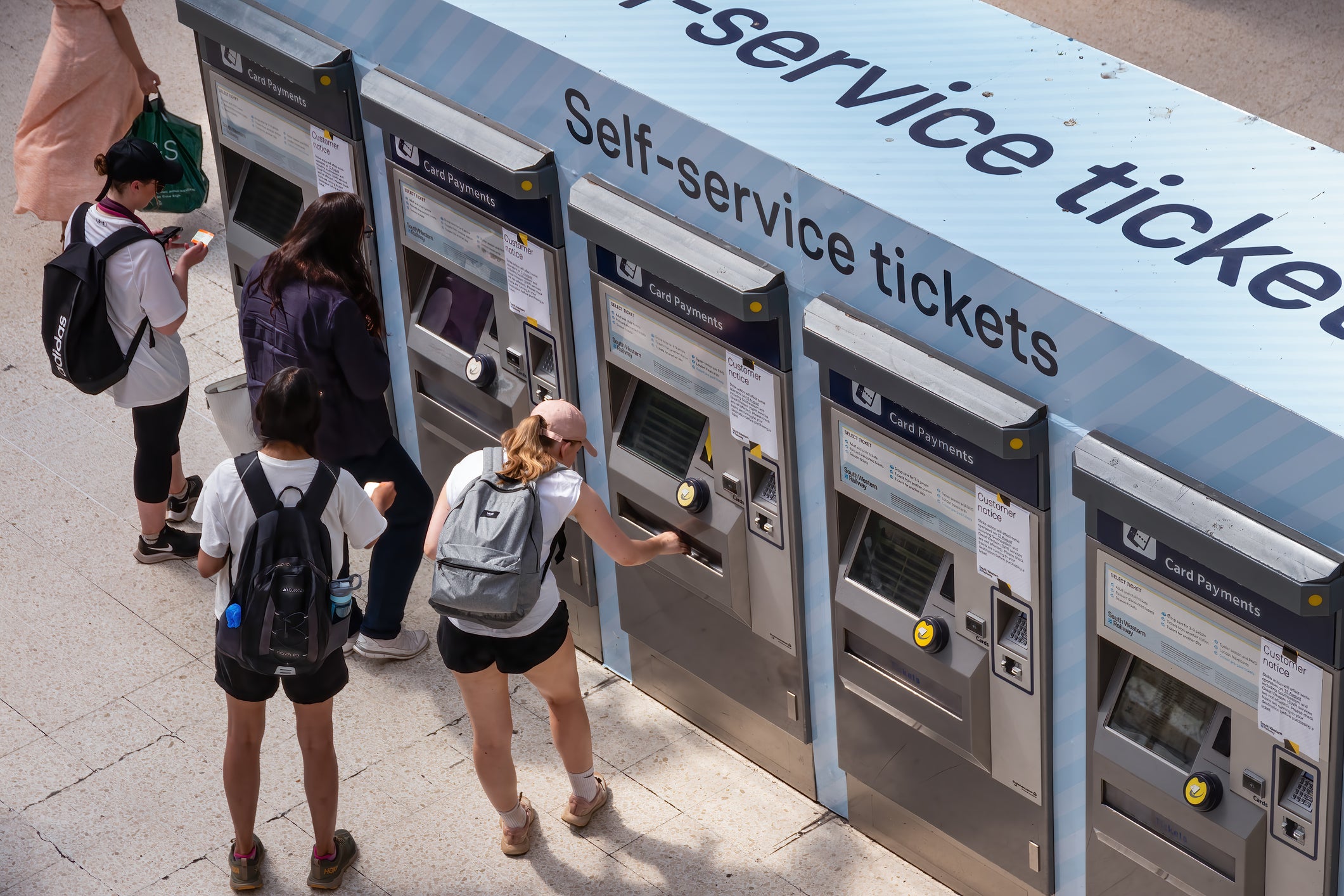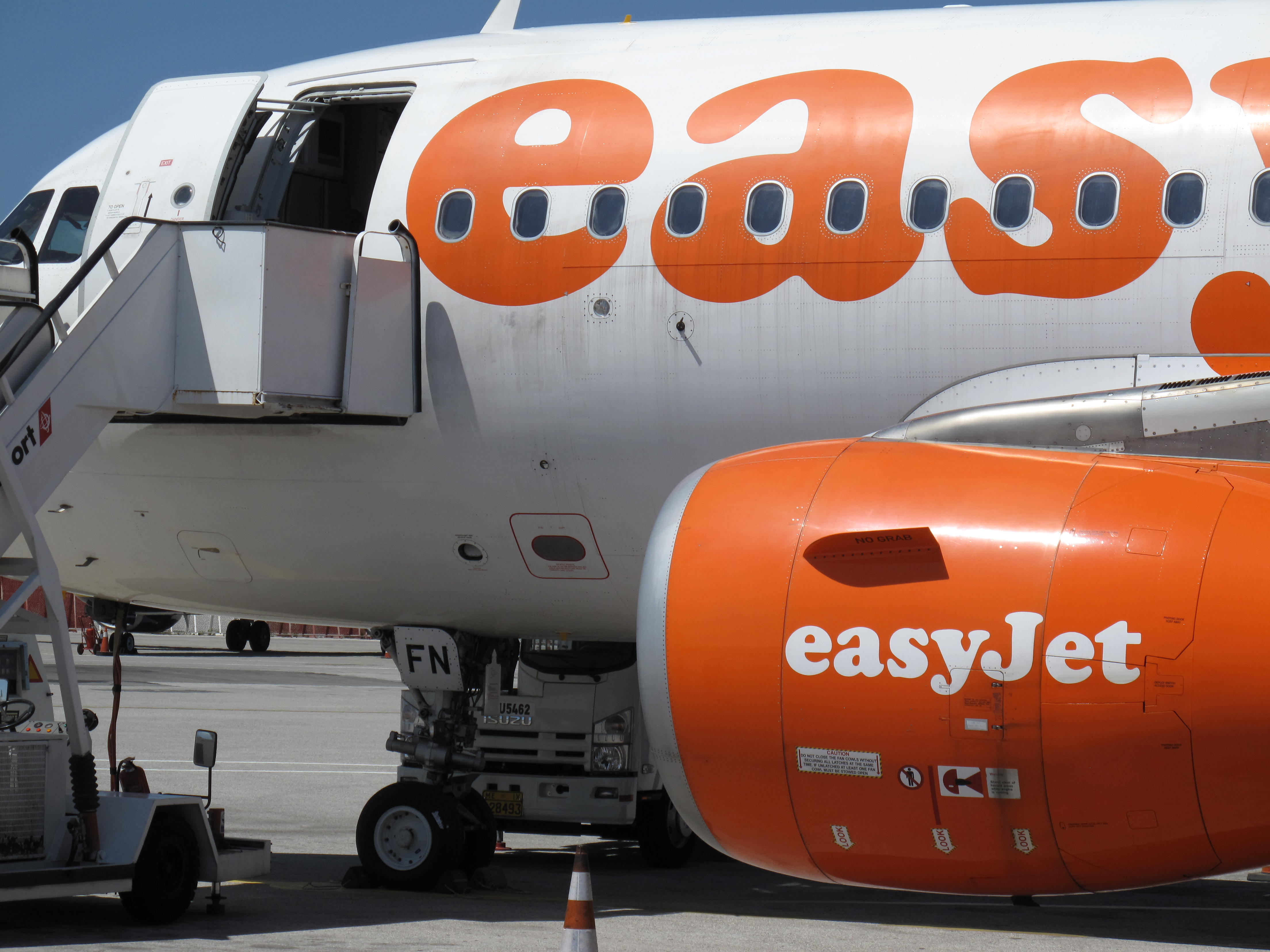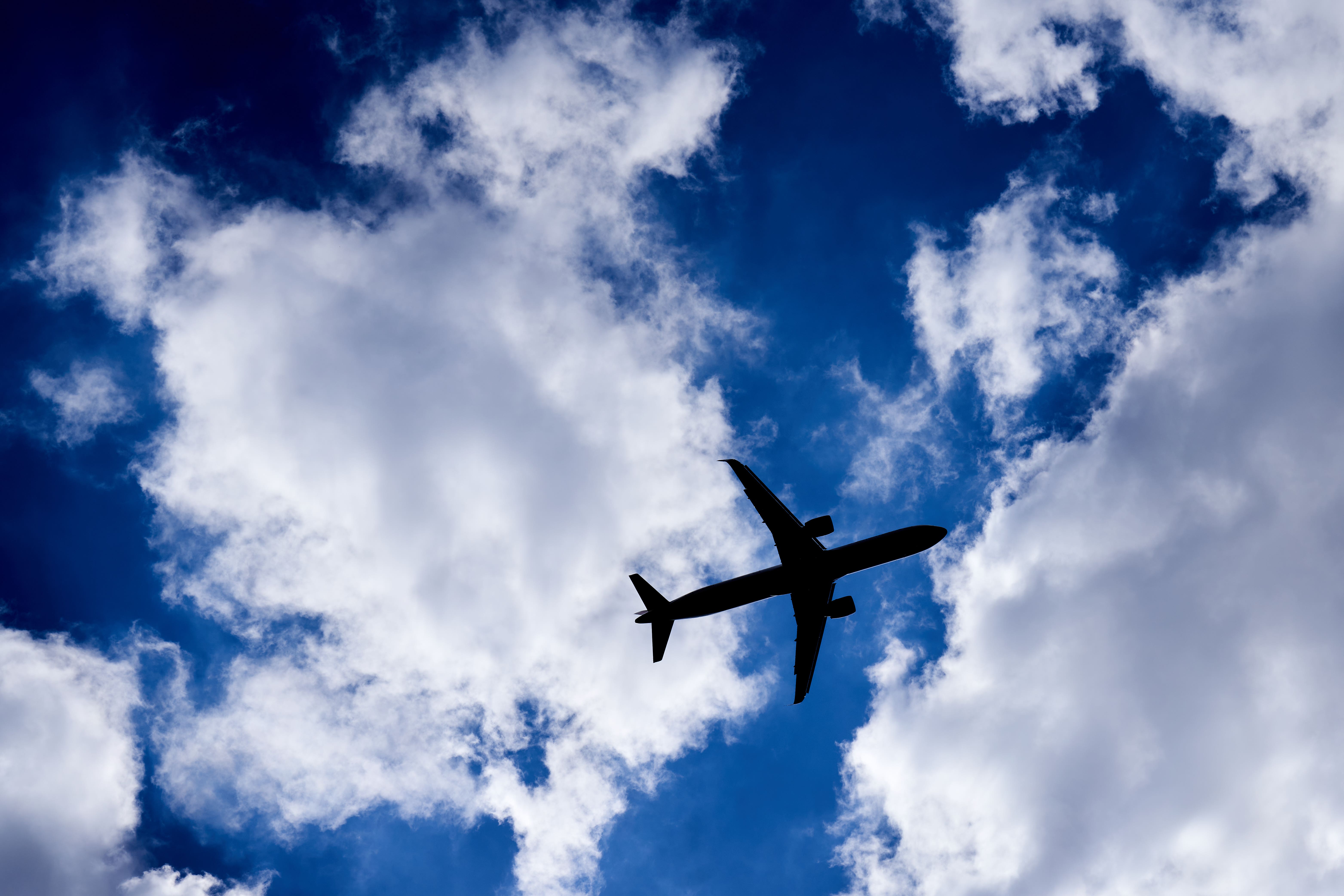Why don’t rail firms offer last-minute cheaper fares for half-empty trains?
Simon Calder answers your questions on airfares, luggage charge refunds, how general elections affect holidays, and last-minute rail offers


Q Do you know why rail companies don’t offer last-minute price cuts for tickets on trains that otherwise would run half-empty – like yellow-sticker items in a supermarket?
LW
A I happen to be travelling on a rush-hour train between London Waterloo and Wimbledon as I am writing back to you, which is probably a good place to start.
Commuter rail services worldwide generally have a model whereby anyone can travel on any train if there is physically space for them to board it, and they can pay for the ticket. Cheaper tickets are available for off-peak travel, which is about as far as the rail companies (and ultimately the government) are prepared to go in cutting fares.
The other aspect is that there is no advantage in buying tickets ahead of time: you will pay £5.60 for the 15-minute journey whether you commit a month or a minute ahead. Beyond a certain point, which from London I would set at about 75 miles, you are into long-distance territory.
On longer journeys, having a seat is regarded as important by many passengers. For inter-city travel, rail firms behave much more like airlines: they aim to fill as many seats as possible while maximising revenue.
Fares for people who walk up and want a ticket on the next available train are usually high. Conversely, to stimulate demand for less popular trains, rail firms offer much more appealing prices for passengers prepared to commit in advance.
I put your question to Mark Smith, the former British Rail manager who now runs the international rail website, Seat61.com. He said: “Generally, operators make the assumption that those who don’t pre-book need flexibility and are willing to pay more for it. Offering cheaper fares to walk-up customers would undermine that and reduce revenue.”
That last point also has a parallel in aviation. For a while in the late 20th century, some airlines used to offer very cheap last-minute standby tickets. But they slowly realised that by allowing desperate travellers – who would pay whatever it took to travel immediately – they were losing revenue. And standby tickets disappeared.

Q I had to cancel a trip to Lisbon this week because my son is in hospital. No refund on the flights is, I guess, fair enough. But shouldn’t I get a refund from the airline for the case I paid for?
Philip N
A I am sorry to hear about your son, and I hope he makes a swift recovery. If you were planning to fly with easyJet, you are able to change your booking to another easyJet flight (on a different route if you like) for a fee of £49. Effectively, the value of your original booking, minus £49, can be transferred to a new ticket. If you paid a high fare, that is a potentially valuable option. It may well be, though, that you have no imminent plans for another trip, and so you must bid farewell to your cash – though you may be able to claim air passenger duty back, at least on easyJet. If you have travel insurance, and your son’s hospitalisation was unexpected, you may be able to claim. But let me tackle your question directly.
Budget airlines like to offer low fares that come with only a very modest cabin baggage allowance. They then sharply increase their revenue by selling the option to take a bigger piece of hand luggage on board, or for checking in a case. The prices of these extras are disproportionate to the cost of providing the service. For example, the cost of adding a 10kg large cabin bag to a £39 ticket on easyJet from Gatwick to Nice is £29. A cynic would say that the airlines fully expect to sell a handful of £39 tickets to people like me, who comply with their meagre allowance, but many more at £68 to passengers who want to travel with more possessions. By making those extras non-refundable, carriers increase the benefit they get when a passenger cancels or no-shows.
For future reference, I recommend you only buy the most basic fare until shortly before departure. When you check in online, you will be invited to add extras such as checked bags or larger hand luggage – in my experience at the same rates as you would pay from the outset. Given that all of us run some risk of not being able to travel, this is a sensible way to minimise the possible downside.

Q Does a general election tend to increase demand for holidays because people want to escape the campaign and polling day? Or does it diminish because they want to stick around for the spectacle?
Megan D
A In my experience, few outside events (apart from the weather) are substantial enough to alter the usual patterns of demand among British travellers. I count four. Two of them involve football: the Euros and the World Cup. The third is also sporting, the Olympic Games. And the fourth: a general election. Let me split the analysis into the campaign and election day itself.
The notion that some people want to escape the campaign, increasing demand (and therefore holiday prices), is a popular one. But I can find neither market nor anecdotal evidence to support it. Going on holiday would be an extreme step to avoid all the campaigning: people could simply turn off broadcast news programmes and find news on other subjects online.
Conversely, I have never heard of anyone cancelling a holiday because they want to watch the hustings. But thousands of candidates, party activists and media who were assuming a quiet early summer will be urgently cancelling travel arrangements. It may be that some enticing Mediterranean villas suddenly become available between now and early July. But the numbers involved will not otherwise move the market: in a typical week, 1.5 million British people travel abroad.
Polling day itself could be different. Not all elections are equal. In 1997, when Labour won by a landslide, plenty of anecdotal evidence suggested people wanted to be “in the room” as the count unfolded. I found a £99 one-week package holiday to Ibiza that arrived back long after the polls closed on the day of the election, 1 May 1997.
Yet eight years later, the May 2005 vote – the third won by Tony Blair – appears to have been regarded as a foregone conclusion, with relatively little interest on election night. I flew out to Nice on the day itself, 4 May 2005, and paid a normal fare for the privilege.
Airlines and holiday companies are currently experiencing “soft” demand for off-peak holidays. They may find it falls still further in the first week of July. I would be on the lookout for some good last-minute deals from airports in England and Wales; schools in Scotland and Northern Ireland will have just broken up, with strong demand from families sweeping up available trips.

Q I’m extremely confused. My experience as a frequent holidaymaker is that prices are rising inexorably. But now Ryanair is saying it doesn’t expect airfares to go up much, if at all. What’s your take?
Doug T
A Yours is a timely question. My strong sense is that, within Europe, holiday prices and airfares have just reached something of a plateau. An annoyingly high plateau, after steep post-Covid rises, but predictions of further increases of between 5 and 10 per cent for the summer now seem unlikely. I can be confident about that because the man who told me about the likely trajectory, back in March, was Ryanair boss Michael O’Leary. He predicted that the shortage of short-haul aircraft resulting from slower-than-expected Boeing 737 Max deliveries and issues with some engines on Airbus A320 series aircraft could leave European carriers well short of capacity. With demand expected to rise inexorably, as people made up for lost sunshine, the restrictions on the supply of seats would lead to higher airfares.
Yet in the airline’s full-year financial results, published this week, Mr O’Leary said: “Recent pricing is softer than we expected.” He expects peak summer fares will be “flat to modestly ahead of last summer”.
I am seeing a good number of cheap tickets over the next few weeks – such as Manchester to Beauvais, Ryanair’s version of Paris, at just £15-25. That might be irritating to Ryanair, but don’t lose any sleep over Europe’s biggest budget airline’s finances. The carrier enjoyed a 21 per cent increase in the average fare, year on year.
What we are definitely not expecting is a slew of last-minute deals this summer. As always, if you can travel outside the school holidays, you will pay much less – and probably have a better experience – than those confined by school term dates.
Longer haul, intercontinental fares still seem to be rising, with transatlantic tickets this summer off the scale. That situation will probably self-correct (by airlines adding more capacity) more quickly than the European market.
Email your question to s@hols.tv or tweet @SimonCalder






Join our commenting forum
Join thought-provoking conversations, follow other Independent readers and see their replies
Comments